Fish oil comes from plenary types of fish. It is rich in two important omega-3 fatty acids called eicosapentaenoic acid (EPA) and also docosahexaenoic acid (DHA).
The benefits of fish oil seems to come from its omega-3 fatty acid content. Fish that are especially rich in these oils include mackerel, herring, tuna, and salmon. The body doesn’t produce many of its own omega-3 fatty acids. Omega-3 fatty acids reduce pain and swelling, and also prevent the blood from clotting easily.
Some fish oil products are approved by the FDA as prescription medications to lower triglycerides levels. Fish oil is also available as a supplement. Fish oil supplements do not contain the same amount of fish oil as prescription products, so they cannot be used in place of prescription products. Fish oil supplements are sometimes used for heart health and mental health, but there is no strong evidence to support most of these uses.
Do not confuse fish oil with EPA, DHA, cod liver oil, flaxseed oil, krill oil, or shark liver oil. See the separate listings for these topics.
Effective for:
High levels of fats called triglycerides in the blood (hypertriglyceridemia). Taking certain fish oil prescription drugs by mouth, including Lovaza, Omtryg, and Epanova, reduces very high triglyceride levels. These products are most often taken at a dose of 4 grams daily. While some non-prescription fish oil supplements might also help, these products contain less omega-3 fatty acids than the prescription fish oil products. People would need to take as many as 12 capsules of fish oil supplements daily to get the same effect as prescription fish oil.
Possibly Effective for :
A procedure to open a blocked or narrowed blood vessel (angioplasty). Taking fish oil by mouth decreases the rate of blood vessel re-blockage by up to 45% when taken for at least 3 weeks before an angioplasty and continued for one month after.
Involuntary weight loss in people who are very ill (cachexia or wasting syndrome). Taking a high dose of fish oil by mouth seems to slow weight loss in some cancer patients. Low doses of fish oil don’t seem to have this effect.
Kidney damage caused by the drug cyclosporine. Taking fish oil seems to prevent kidney damage in people taking cyclosporine. Fish oil also seems to improve kidney function in people who recently rejected a transplanted kidney and are taking cyclosporine.
Menstrual cramps (dysmenorrhea). Taking fish oil, alone or with vitamin B12 or vitamin E, can improve painful periods and reduce the need for pain medications for menstrual cramps.
Nausea and vomiting caused by an infection of the intestines. Taking fish oil during pregnancy seems to reduce the risk of the child having nausea and vomiting from an infection of the intestines.
Heart failure. Consuming higher amounts of fish oil from foods has been linked with a lower risk of heart failure. Eating 1-2 servings of non-fried fish per week is recommended. It’s too soon to know if taking fish oil supplements helps prevent heart failure. But taking fish oil supplements by mouth might reduce the risk of death or hospitalization in people that already have heart failure.
Abnormal levels of blood fats in people with HIV/AIDS. Taking fish oil supplements by mouth reduces triglyceride levels in people with abnormal cholesterol levels caused by HIV/AIDS treatment.
High blood pressure. Taking fish oil by mouth seems to slightly lower blood pressure in people with moderate to very high blood pressure. It’s not clear if it helps people with slightly high blood pressure or those who are already on blood pressure-lowering medications.
A condition that slowly leads to kidney disease (IgA nephropathy). Taking fish oil by mouth for 2-4 years can slow the loss of kidney function in high-risk patients with IgA nephropathy. It’s not clear if it helps when taken short-term, or in low-risk patients.
Build up of fat in the liver in people who drink little or no alcohol (nonalcoholic fatty liver disease or NAFLD). Taking fish oil by mouth might reduce liver fat and improve liver health in people with NAFLD.
Rheumatoid arthritis (RA). Taking fish oil by mouth, alone or together with the drug naproxen, seems to help improve symptoms of RA. However, taking fish oil does not seem to prevent RA.
Possibly Ineffective for
An eye disease that leads to vision loss in older adults (age-related macular degeneration or AMD). People who eat fish more than once weekly have a reduced risk of developing age-related vision loss. But taking fish oil by mouth for up to 6 years does not prevent vision loss or slow down its progression.
Chest pain (angina). Taking fish oil supplements by mouth does not reduce the risk of death or improve heart health in people with chest pain.
Hardening of the arteries (atherosclerosis). Taking fish oil by mouth doesn’t slow the progression or improve symptoms of atherosclerosis.
Eczema (atopic dermatitis). Taking fish oil supplements doesn’t help treat or prevent eczema. But children who eat fish at least once weekly from the age of 1-2 years seem to have a lower risk of developing eczema.
Irregular heartbeat (atrial fibrillation). Eating fatty fish or taking fish oil supplements by mouth does not reduce the risk of irregular heartbeat. In fact, the risk of irregular heartbeat might be increased in some people taking fish oil supplements.
A lung disease that affects newborns (bronchopulmonary dysplasia). Giving fish oil by mouth to premature infants doesn’t seem to reduce the infant’s risk of developing this lung disease.
Long-term blood flow problems in the brain (cerebrovascular diseases). Eating fish might reduce the risk of cerebrovascular disease. But taking fish oil supplements by mouth doesn’t have this effect.
Memory and thinking skills (cognitive function). Taking fish oil supplements by mouth does not improve most memory or thinking skills in older people, young adults, or children.
A digestive tract infection that can lead to ulcers (Helicobacter pylori or H. pylori). Taking fish oil supplements by mouth does not seem to improve H. pylori infections when compared to standard medications.
Kidney transplant. Taking fish oil by mouth doesn’t help people live longer after a kidney transplant. It also doesn’t seem to prevent the body from rejecting the transplant.
Breast pain (mastalgia). Taking fish oil by mouth doesn’t seem to reduce long-term breast pain.
Multiple sclerosis (MS). Taking fish oil by mouth doesn’t seem to improve symptoms in people with MS.
Osteoarthritis. Taking fish oil by mouth doesn’t improve pain or function in people with osteoarthritis. But it might help overweight people with osteoarthritis-like pain.
High blood pressure during pregnancy. Taking fish oil by mouth does not seem to prevent high blood pressure during pregnancy.
A pregnancy complication marked by high blood pressure and protein in the urine (pre-eclampsia). Taking fish oil by mouth does not seem to prevent pre-eclampsia.
A mental disorder marked by hallucinations and delusion (psychosis). Taking fish oil by mouth does not seem to prevent or reduce symptoms of psychosis.
Sudden chest pain that may occur while resting (unstable angina). Taking fish oil by mouth does not seem to prevent this condition.
Abnormal rapid heart rhythms (ventricular arrhythmias). Taking fish oil by mouth does not affect the risk for abnormal heart rhythms or reduce the risk of death in people with abnormal rapid heart rhythms.
Likely InEffective for
Diabetes. Taking fish oil by mouth doesn’t lower blood sugar in people with type 2 diabetes. It also doesn’t reduce the risk of certain complications of diabetes, such as heart attack and stroke. But taking fish oil by mouth might lower blood fats called triglycerides in people with diabetes.
There is interest in using fish oil for a number of other purposes, but there isn’t enough reliable information to say whether it might be helpful.




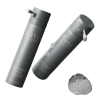


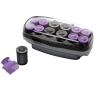

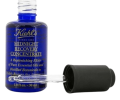
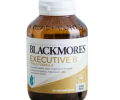

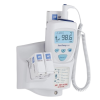






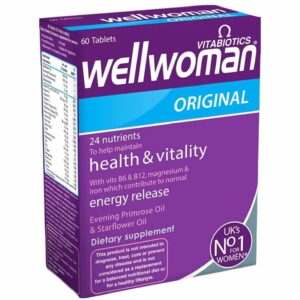

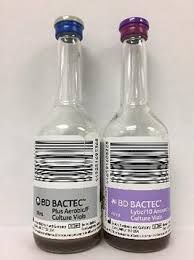

Reviews
There are no reviews yet.